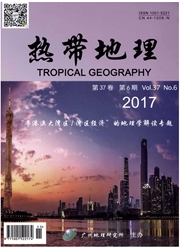

 中文摘要:
中文摘要:
在公共空间价值研究中,社会行动理论提出基于"场域"空间结构化的社会行动研究框架,并为公共空间价值建构提供了实践论方法。在西方国家出现的公共空间价值危机背景下,社区逐渐成为构建公共空间价值的重要载体,社区规划因其社会行动本质,逐步成为重构社区公共空间价值的重要手段。目前我国社区规划的实践作为城市规划制度体系框架之下的局部探索创新,很难适应公民社会背景下不断成长的社区行动需要。本文借鉴新制度主义理论,以广州市北京街盐运西、流水井、龙藏3个传统文化社区为实证研究对象,从"组织"和"场域"两个分析视角,探讨社区运行空间构建和社区振兴行动方法,试图搭建我国面向公共空间价值需求的社区规划体系。研究显示,上述社区在商业文化的冲击下,面临着社区异质性加深、社区资本降低、社区行动障碍等问题,建设更包容开放、更有活力的可持续社区则成为社区居民的普遍愿望和需求。
 英文摘要:
英文摘要:
In the study of public space value, the social action theory puts forward a framework of social action research based on the "field" structural space, and provides a practical method for the construction of public space value. Community has become an important carrier of the construction of public space value in the background of the appearance of public space value crisis in western countries, and has gradually become an important means to reconstruct the community public space value for its nature of social action. At present, the community planning in China, which practices as the local exploration innovation in the framework of urban planning system, has been difficult to adapt to the continuous growth of community action need under the background of civil society. Taking Yanyunxi, Liushuijing and Longzang communities in Beijing Street Subdistrict of Guangzhou as examples, the study shows that the three communities are facing the problems of deepen heterogeneous, reduced community capital, and obstacles of community action under the impact of business culture. To build more tolerance, more open, and more energetic sustainable communities has become the common desire and demand of the community residents. This paper discusses the construction of community operation space and the method of community promoting action, trying to construct community planning system to meet the public space value demand from the perspectives of"organization" and "field" with the new institutionalism theory.
 同期刊论文项目
同期刊论文项目
 同项目期刊论文
同项目期刊论文
 期刊信息
期刊信息
